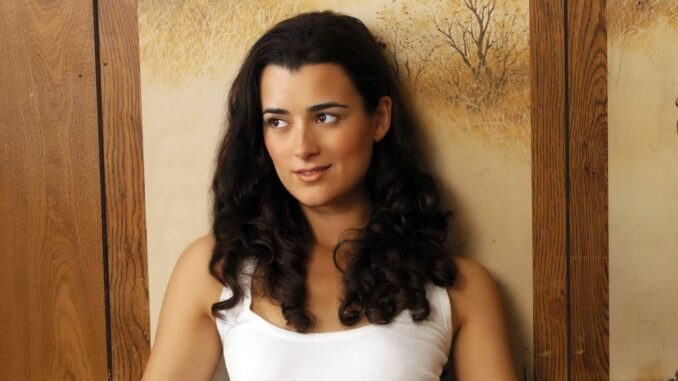
Ziva Gets the Recognition She Always Deserved
Ziva David was always a woman shrouded in mist, forged in the crucible of Mossad, and tempered by a past that few could fully comprehend. When she first arrived at NCIS, she was an enigma – a skilled, dangerous operative whose loyalty was questioned, and whose every move seemed to carry the whisper of a secret. Yet, through years of trials, sacrifice, and quiet acts of unwavering devotion, Ziva didn't just earn her place on the team; she earned a recognition that transcended mere professional respect, blossoming into a profound acknowledgment of her humanity, her strength, and her enduring, irreplaceable heart.
Initially, Ziva arrived at NCIS less as a colleague and more as an instrument, a finely honed blade sent to observe and, if necessary, to execute. Her stoic demeanor, her fractured English, and her alarming proficiency in various forms of lethal combat often obscured the woman beneath the formidable exterior. The team, and indeed the audience, initially saw a shadow of her brother, Ari, a dangerous wild card whose presence was as unsettling as it was intriguing. Her "kill switch" – her Mossad training overriding her personal will – was a constant, unnerving reminder that she belonged to another world, another command. Recognition, in those early days, was grudgingly given for her undeniable skill, but her depth, her capacity for warmth, and her quiet yearning for belonging remained largely unseen, buried under layers of operational discipline and personal trauma.
But beneath the hardened exterior, a different Ziva began to emerge, piece by painful piece. It was in the quiet moments: the knowing glance with Gibbs that spoke volumes, the fierce protectiveness she showed McGee, the exasperated yet fond banter with Tony. Her loyalty, once a tool of her trade, transformed into an unshakeable bond forged in shared peril and mutual respect. She absorbed the quirks of American culture, wrestled with abstract concepts like sarcasm and trust, and slowly, painstakingly, chose her new family. Her willingness to stand with NCIS, even when it meant defying Mossad and alienating her own father, was the first undeniable testament to where her true allegiance lay. This was the nascent stage of her recognition: the team started to see her not just as an agent, but as their agent, a fierce protector and a burgeoning friend.
The ultimate crucible of Ziva’s journey for recognition came, paradoxically, in her absence. Her "death" in Israel, an act of selfless sacrifice to protect those she loved, ripped a gaping, echoing void through the heart of NCIS. The pain her loss inflicted upon Gibbs, McGee, Ducky, and especially Tony, was palpable. It was in the tear-filled eyes of her colleagues, the quiet moments of remembrance, and Tony's desperate, all-consuming quest for justice, that the true measure of Ziva’s impact was finally understood. Her value wasn't just in her combat skills or intelligence analysis; it was in the laughter she shared, the unspoken understanding, the moral compass she provided, and the way she made each of them feel more complete. Her "death" was the ultimate acknowledgment of her irreplaceable essence, forcing everyone to confront the magnitude of what they had lost.
Her eventual return, years later, wasn't merely a plot twist; it was a profound, almost spiritual, acknowledgment of her enduring spirit and the love she inspired. To see her walk back into Gibbs's basement, still fiercely capable but carrying a new, quieter wisdom, was to witness a long-overdue reunion with her own narrative. The recognition she received then was multifaceted: the relief of her friends, the deep, abiding love of Tony, and the tender embrace of Tali, the daughter she had sacrificed everything to protect. It was the recognition of a survivor, a mother, and a woman who, despite unimaginable trials, had found her way back to the light. It was the understanding that her story wasn't just about the fight, but about the peace she had earned, the love she deserved, and the legacy she unknowingly built.
Ziva’s recognition was never a sudden revelation, delivered in a grand speech or a medal. It was a slow, deliberate bloom, nurtured by shared experiences, validated by sacrifice, and cemented by an enduring love that defied time and distance. She arrived an enigma, an outsider, and departed (and returned) as a beloved member of a chosen family, her worth undeniable, her impact immeasurable. In the end, Ziva David received the ultimate recognition: not just for what she could do, but for who she truly was – a woman of incredible strength, profound loyalty, and an indomitable spirit that finally found its rightful place in the hearts of those she saved, and who, in turn, saved her.